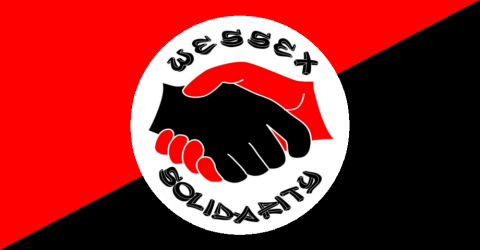
The Workers Solidarity Federation, Pakistan section of the anarcho-syndicalist International Workers’ Association (IWA), are currently engaged in relief efforts to communities affected by the extraordinary floods caused by climate change.
Throughout 2022, Pakistan experienced an unusually intense heat-wave, with temperatures exceeding 50 degree celsius by May. With over 7,000 glaciers, Pakistan’s glacier count is only outnumbered by the polar regions1 , and the high temperatures, that affected much of South Asia, caused glacial melt, which in turn triggered the failure of ice dams and outburst floods. Water from these outburst flood travelled along tributaries and flowed into the main rivers, including the Indus River, Pakistan’s largest, causing their banks to break. The end result are the flash floods in Pakistan, exacerbated by the record monsoon rains that began in June. The events in Pakistan can be added to the list of spectacular instances of capitalism-induced climate breakdown.
The floods in Pakistan have so far affected two-thirds of Pakistan’s districts, destroyed two million acres of farmland, caused over 1500 deaths, and led to the displacement of 33 million people,2 with Unicef suggesting 16 million children affected so far. 3 All reasonable estimates indicate that millions in Pakistan now face the prospect of malnutrition and infections, particularly those caused by water-borne diseases.
In response to this, on 23rd August, members of the Workers Solidarity Federation, founded in May 2020 as the Pakistan section of the anarcho-syndicalist International Workers’ Association (IWA) established an emergency fund for disaster relief and began distributing food in flood-affected areas.4 In the course of the floods, some of their members involved in distributing aid in Balochistan became homeless5 , despite this they continued to distribute over 200 meals to families in the region.6 Since then, their relief efforts, supported by anarchists from around the world, have provided direct disaster relief to thousands of people affected by the ongoing floods in Balochistan and Sindh, in an extraordinary tale of mutual aid and transnational solidarity. On 4th September, WSF established a Flood Relief camp in Karachi.7 , distributing goods and cash to those in need.8 On 10th September, in Balochistan, WSF provided tents to people displaced by the floods. On 13th September, WSF members distributed food to people in the Dadu district of Sindh, travelling by boat across the flooded area9 , providing food supplies to 105 families10 . On 18th September, in Balochistan, WSF distributed food rations tents, mosquito nets, and infant care to the effected people in coming days.11 . On 25th September, WSF installed water tanks to provide clean water and distributed food.12 As at the time of writing, their relief efforts continue.
In the wake of any major disaster, where state and capital are absent, and a community is left to fend for itself, people self-organise on the basis of a need to survive. The self-organisation of disaster communities, to an extent, embodies anarchist principles of decentralised organisation, socialisation of resources, mutual aid, and co-operation. These principles come to the fore amidst disasters because they are taken as the most expedient option for maximising people’s chances of survival, but they are also measures that contradict the logic of capital and the state, which sooner or later will reclaim the lost territory, unless it is prevented from doing so by a large, armed, anarchist body.
The activities of the WSF-IWA are some of the most significant and heroic examples of anarchist praxis to date, and are particularly extraordinary considering that the WSF is only two years’ old.
To support the relief effort of the WSF, donate here: https://www.paypal.com/pools/c/8NfSnN0RXl 13
https://libcom.org/article/pakistan-floods-anarchist-global-relief-effort-wsf-iwa



 The queues began in the night. Starting at St Giles’ Cathedral on the Royal Mile, a line of
The queues began in the night. Starting at St Giles’ Cathedral on the Royal Mile, a line of 









